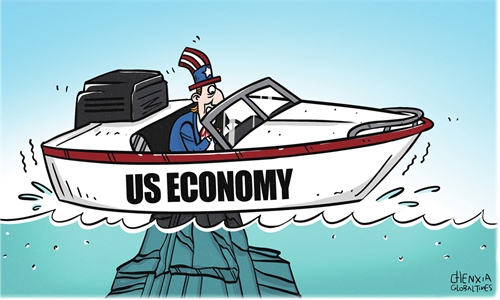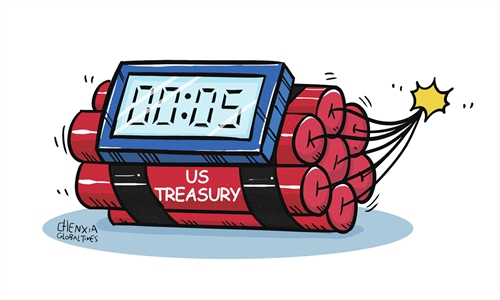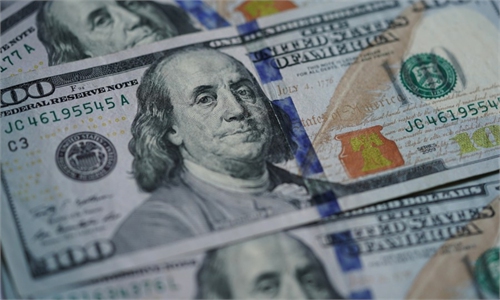
Illustration: Chen Xia/Global Times
US Treasury Secretary Janet Yellen recently warned about the consequences of failing to raise the debt limit. If there is a debt crisis or, even worse, a government default, it could do irreparable harm to the US and the world economy. At the moment, some Western media outlets hype up China-related issues, but this prejudice against China will only make things more complex and will not help to resolve problems.Bloomberg said on Saturday that China is likely to be the winner from the US debt limit threat. The Hill published an op-ed on Friday with the headline "Debt ceiling debate: A gift to China's grand strategy." The article said the threat of a potential US government debt default plays into China's "longstanding grand strategy for expanding its global role and diminishing US power and global influence." This sounds like just a new variation of the "China threat" cliché, but ideological prejudice and a zero-sum mentality won't help the US economy.
US news website Axios reported on Saturday that Yellen said she is "nervous" about the US defaulting on its debt and cautioned that Americans will face a scary and spiraling recession if Congress doesn't raise the debt ceiling this summer. Yellen's dark financial forecast is part of the Biden administration's attempt to put political pressure on the new House GOP majority to raise the debt ceiling, Axios said.
However, many fear Republicans will use the battle over the US borrowing limit as a form of political leverage to force Democrats to agree on major spending cuts. This will lead to a standoff between the Republican-controlled House and the Democrat-controlled White House over the debt ceiling.
Economists have previously warned of dire consequences if Congress doesn't raise the debt ceiling and if the US government exhausts the extraordinary measures being used to avoid a default. Some US officials said a default would have serious and protracted financial and economic effects: Financial markets would lose faith in the US, the dollar would weaken, and stocks would fall. Many analysts have predicted that the potential repercussions of a US government default could include a downgrade in the US credit rating, an interest rate rise for consumer loans, and a drop-off in consumer confidence that could shock the US financial market and tip the economy into recession.
A default could be catastrophic, causing irreparable harm not only to the US economy but also to the rest of world. In an era of global interdependence, a zero-sum mentality doesn't make sense. It should be pointed out that everyone in global capital markets would feel the effects, and there would be no winner from a global financial tsunami. If US lawmakers fail to strike a deal to avoid default, some experts believe the shock could plunge the world into recession and a financial crisis. China is the world's second-largest economy and is an active participant in global capital markets, so China, as well as other emerging economies, would feel the effects as well.
If a US government debt default takes place, its national credibility will be severely affected, and the global economy will feel the chill. Currently, public opinion should focus on the US and urge American politicians to solve the problem as soon as possible and avoid negative spillovers, instead of working to hype up the "China threat" theory.
With new leadership in the US House of Representatives, many have warned that debt ceiling negotiations may be especially challenging. The US politicians and lawmakers from both parties should stop using the debt ceiling issue as a bargaining chip for political interests, as it is irresponsible toward the US and the world economy.
The author is a reporter with the Global Times. bizopinion@globaltimes.com.cn



